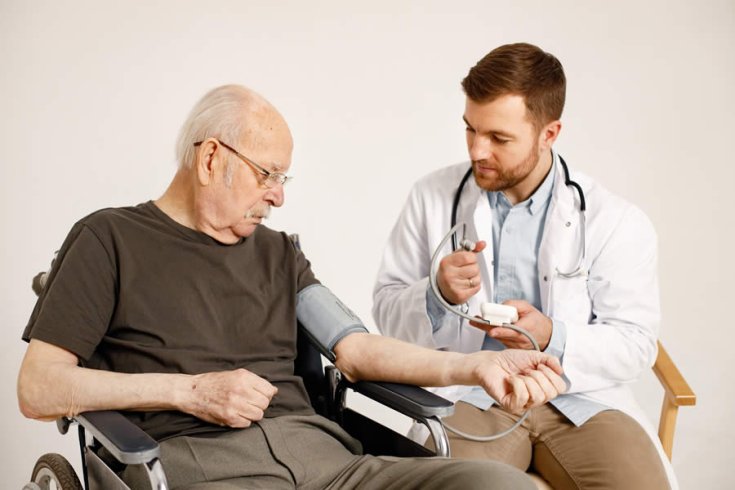When most people hear the name Capitol Cardiology Associates, the first thought is usually heart attacks. Emergency care is certainly part of the picture, but it only represents a fraction of what a heart doctor does. The true work of cardiology is about guiding patients before a crisis begins, managing conditions that last a lifetime, and using advanced tools to keep the heart working as well as it can. A cardiologist helps people protect their health through steady care, careful monitoring, and customized treatment. If you have ever wondered what happens beyond the emergency room, keep reading for a clear idea of what modern heart care really looks like.
Prevention Is the Starting Point
Most heart problems develop quietly over the years. By the time a crisis happens, disease has often been building in the background. This is why prevention is at the center of cardiology. A typical visit may start with a detailed history that covers lifestyle, stress, sleep, and nutrition, along with family background. Some patients discover that their genetics place them at higher risk, even when they feel fine. Others learn that blood pressure readings or cholesterol levels already suggest strain on the arteries. When a cardiologist has this information early, the chances of avoiding serious illness improve significantly. Testing is a crucial tool in prevention. An electrocardiogram can show small rhythm issues before they cause fainting or stroke. Blood work may reveal markers that point to inflammation or cholesterol imbalance. In some cases, a coronary calcium scan shows plaque developing in the arteries long before it becomes dangerous. These tools help identify problems that the patient cannot feel but are very real. Prevention is not only about tests. It is also about building practical habits. A cardiologist in Hyattsville might suggest walking for a set time each day, swapping salty foods for fresh ones, or keeping a regular bedtime to improve sleep. The goal is to make the advice realistic, not overwhelming. Simple steps are easier to follow than long lists of rules, and steady habits can support health for decades.
Ongoing Management of Chronic Conditions
Once a condition has been diagnosed, steady management is important. Some people live with high blood pressure or atrial fibrillation for years. Others face the challenges of heart failure or valve disease. In each case, the cardiologist becomes a long-term partner. Management usually involves a mix of medication, monitoring, and lifestyle guidance. Doctors may prescribe blood thinners to lower stroke risk in patients with irregular heart rhythms. Beta blockers or ACE inhibitors can help support heart function in those with heart failure. The dosages of these medications can change over time, which makes follow-up visits critical. Imaging tests are also used to track progress during treatment. An echocardiogram every year or two may track how the heart muscle is performing. Stress tests can show whether the blood supply is keeping up with daily activity. If a problem is detected, the treatment plan is adjusted. The goal is stability and avoiding setbacks. Patients find that this ongoing relationship with their cardiologist brings peace of mind. They know that someone is following their numbers, interpreting the results, and adjusting care before something gets worse.
Specialized Testing and Procedures
Cardiology combines medical care with advanced technology. Tests and procedures allow doctors to see and correct problems that once would have been hidden. For diagnosis, tools include echocardiograms, Holter monitors, stress tests, and cardiac CT scans. Each test answers a different question. Is the heart muscle strong? Are there rhythm problems at night? Do the arteries narrow during activity? Is there hidden plaque that might cause trouble? These answers give patients and doctors a roadmap. When a procedure is needed, cardiologists often use minimally invasive methods. A stent can be placed through a catheter to keep a blocked artery open. Ablations can correct irregular electrical signals that trigger atrial fibrillation. Pacemakers and defibrillators can restore reliable rhythms. These procedures may sound complex, but they are usually done with a short hospital stay and quick recovery. Importantly, these interventions are not always done in emergencies. Many are planned ahead of time, based on testing that shows a high risk for future events. This allows patients to take care of issues before they become dangerous. Knowing that a heart doctor has both the expertise for prevention and the technical training for advanced procedures gives patients confidence in their care.
Guidance Through Every Stage of Life
The heart changes as people move through different phases of life. A cardiologist provides direction that adapts to these changes. For young adults, the focus is on education. Early discussions may cover habits such as smoking, excess caffeine, or weight gain. Managing these risks early can ease the strain on the heart later in life. For adults in midlife, routine care often includes checking blood pressure, monitoring cholesterol, and building exercise plans. Many people at this stage notice early signs of heart disease and begin treatment. In older adults, the focus shifts to managing complex conditions. That may mean tracking heart failure symptoms, balancing medications, or adjusting activity to stay independent. Conversations with families also become more common. A cardiologist may help relatives understand what to expect and how to provide daily support.
Building Trust Through Clear Communication
One part of heart care that often goes unnoticed is the importance of communication. The best outcomes happen when patients understand what is happening inside their body and why each step of treatment matters. A cardiologist can explain what a number means, why a certain medication is needed, and how daily habits shape outcomes. This makes patients more likely to follow their plan because they understand its purpose. Clear communication also encourages patients to share their own concerns. Someone might hesitate to mention fatigue or dizziness if they think it is unimportant. In reality, those symptoms may be vital clues. By creating a space where patients feel comfortable speaking up, cardiologists gather more accurate information and deliver better care.
Are You Concerned About the Health of Your Heart?
Heart care involves prevention, management, testing, procedures, and guidance across every stage of life. Emergencies are only one piece of the picture. A cardiologist provides steady support that keeps patients healthier over the long run. The real focus is on protecting the quality of life and making sure people can enjoy their years with confidence. At Capitol Cardiology Associates, that commitment defines our work. We treat every patient as a partner in their own care and provide the expertise needed at each stage of the journey. Take the next step today and schedule your appointment.






